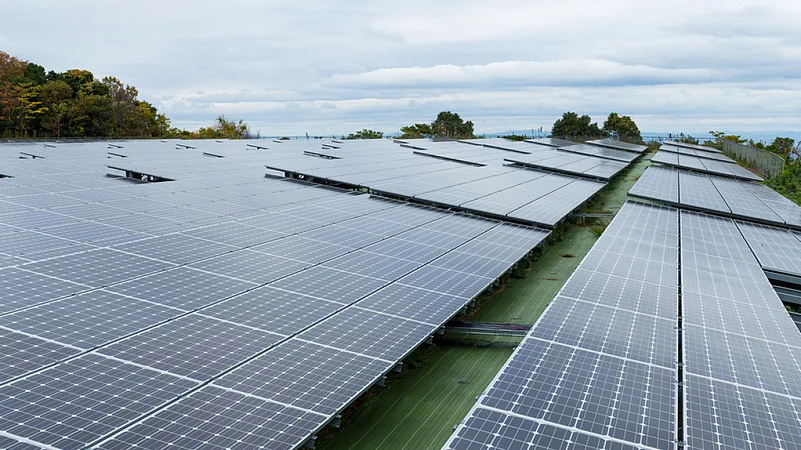The International Solar Alliance (ISA) has decided to increase the viability gap funding for renewable projects to 35 per cent, its President R K Singh said on Tuesday adding it will increase the investment flow into Africa.
Under its Viability Gap Funding (VGF) mechanism, ISA provides 10 per cent or USD 150,000 (which ever is lower) of the project cost to the member nation for an identified renewable energy project.
ISA has a programme for VGF, so funding is available for projects in developing countries.
"Today, we (member countries)... all the ministers together.. decided that we will increase the viability gap funding from 10 per cent to 35 per cent," he said.
The move will enable more investments flow into Africa in the solar industry, Singh, who is also Minister for New and Renewable Energy, said at a press conference at the sixth session of ISA Assembly.
The ISA president said about 733 million people across the world don't have access to electricity and it is ISA's mission to ensure that they get access to renewable energy.
"We have a mission to ensure access to these people using renewable energy... in renewable energy, solar has the most potential as it can sustain for longer period of time," he added.
Singh further said the steps, the regulatory mechanism and techno regulatory framework in India have enabled investments to come into the country. The experience will be shared with other member countries of ISA.
ISA has also set up a fund which will de-risk investments in developing countries. The fund has components like the insurance component and payment security mechanism component so the project and payment is secured.
Chrysoula Zacharopoulou, Co-President of the Assembly and France's Minister of State for Development, Francophonie and International Partnerships said, for France, the ISA is a key initiative to promote the development of clean energy and thus combat climate disruptions.
"It is playing its full part in this great project, with constant and growing support for our Alliance. Through the French Development Agency (AFD), we've financed over 1.5 billion euros worth of solar projects since 2016," Zacharopoulou said.
Last year, France provided over 7.5 billion euros in climate finance to the partners. These are not mere figures, but concrete projects, such as the construction of the Onigbolo solar power plant in Benin, which the country completed this year, bringing 25 megawatts of clean energy to the people of Benin.
"The solar revolution must be backed up by a broader strategy of access to energy. I sincerely believe that this Alliance has the capacity to provide solutions to one of the great challenges of our time, despite the fractures in the world," she said.
Ajay Mathur, Director General of International Solar Alliance, said, last year solar industry witnessed an investment of USD 310 billion, of which only 3 per cent were in Africa.
This year the investments were at USD 380 billion, he said.
"We urgently need to accelerate the build-up of solar energy, especially in developing countries and in applications that influence the daily lives of those without access to reliable energy – such as getting electricity from solar mini-grids, powering agricultural pumps, running cold storages, etc," Mathur said.
Capacity building and regulatory change are necessary enablers towards that. ISA is facilitating over 9.5 GW of solar applications in 55 developing countries, including LDCs and SIDs, and have already provided training to nearly 4,000 people across the developing world on ways to make a living out of supporting solar energy, he said.
At the Assembly, Singh also inaugurated four projects of ISA. These were the solarisation of the parliament building of the Republic of Malawi and solarisation of two rural health care centres in the Republic of Fiji, with an 8-kW solar PV system and 20-kWh battery storage capacity for each health centre.
Besides, there was installation of 1 solar powered cold storage of capacity 5 MT for the benefit of agricultural stakeholders at La Digue Island, Republic of Seychelles and solarisation of the Nawai Junior Secondary school (JSS) in the Republic of Kiribati, with a 7 kW Solar PV rooftop system paired with a 24-kWh BSS.


























.jpg?w=200&auto=format%2Ccompress&fit=max)




